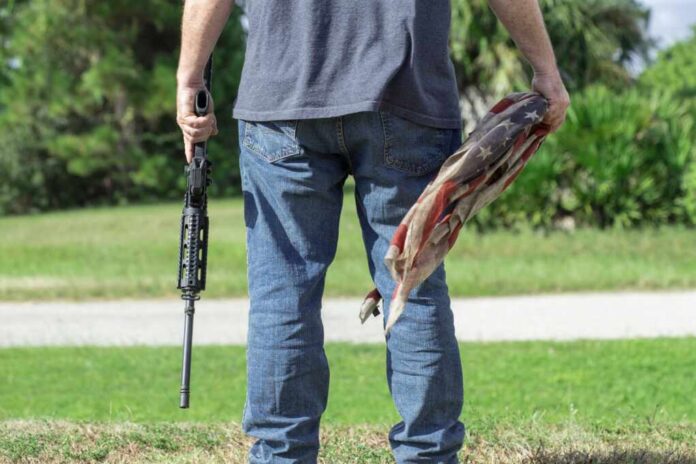
St. Louis couple Mark and Patricia McCloskey, whose 2020 armed standoff with Black Lives Matter protesters ignited a national debate over gun and property rights, have finally reclaimed their AR-15 rifle after nearly five years of legal battles.
Story Snapshot
- Mark and Patricia McCloskey regained their seized AR-15 rifle on August 3, 2025, after years of litigation.
- The couple became national symbols in 2020 for confronting BLM protesters outside their home with firearms.
- Legal actions included criminal charges, guilty pleas, weapon surrenders, and eventual pardons.
- The case has become central to debates about the Second Amendment, property rights, and government overreach.
Five Years After Viral Standoff, McCloskeys Win Back Rifle
On August 3, 2025, Mark and Patricia McCloskey received their AR-15 rifle from authorities, concluding a protracted legal fight that began after the couple confronted Black Lives Matter protesters with firearms outside their St. Louis home in June 2020. The incident, which quickly went viral, thrust the McCloskeys into the national spotlight and turned them into household names among both gun rights defenders and critics of vigilantism. Their weapons were seized as part of a legal process that followed a wave of protest-related confrontations nationwide during the summer of 2020.
The return of the AR-15 came after the McCloskeys waged three lawsuits and endured nearly 1,850 days of legal wrangling with local authorities. Mark McCloskey marked the occasion on social media, writing: “It only took 3 lawsuits, 2 trips to the Court of Appeals, and 1,847 days, but I got my AR-15 back!” The couple expects their pistol, also seized in the aftermath of the confrontation, to be returned soon. Their perseverance has resonated with advocates of the Second Amendment and property rights, while also reigniting criticism from those who believe their actions escalated tensions during a period of widespread unrest.
Watch: McCloskey AR-15 Gun Return St Louis BLM Protest Legal Battle – YouTube
A Flashpoint in America’s Debate Over Rights and Protests
The original standoff occurred on June 28, 2020, when protesters marching to the St. Louis mayor’s home entered the McCloskeys’ gated community, reportedly breaking a gate and ignoring posted “No Trespassing” signs. The couple, both lawyers, emerged from their residence brandishing an AR-15 and a pistol, confronting the crowd and drawing sharp lines in the sand of American public opinion. Prosecutors charged them with unlawful use of a weapon, and the McCloskeys eventually entered guilty pleas to misdemeanors, paid fines, and surrendered their firearms as part of a plea arrangement. Missouri’s Governor later pardoned the couple, but their legal entanglements continued, culminating in the return of their rifle this month.
The McCloskey case has become a symbolic battleground for issues at the core of the American experience: the right to defend one’s home, the sanctity of private property, and the limits of both government authority and protest activity.
Legal Battles and Political Interventions Shape the Outcome
The aftermath of the confrontation was marked by a series of legal and political maneuvers. After their guilty pleas and weapon surrenders, Missouri Governor Mike Parson issued pardons to both Mark and Patricia McCloskey, an act that underscored the state’s support for their claims of self-defense. The Missouri Supreme Court later suspended the couple’s law licenses, but the suspension was stayed with probation. During this period, the couple pursued legal action to recover their seized firearms, facing resistance from local officials. Missouri’s Attorney General and other state leaders advocated on their behalf, emphasizing the centrality of gun rights and property protections in state law. It was only after multiple lawsuits and appeals that authorities finally released the AR-15 back to the McCloskeys.
The McCloskeys’ ordeal highlights the power struggle between local prosecutors, who sought to enforce weapons laws and maintain public order during a volatile time, and state officials, who viewed the couple’s prosecution as an infringement on fundamental rights. This tension mirrors broader national divisions over the roles of government, law enforcement, and the judiciary in mediating conflicts between property owners and demonstrators.
Sources:
Derecha Diario
Wikipedia
Fox News
WPRO

























